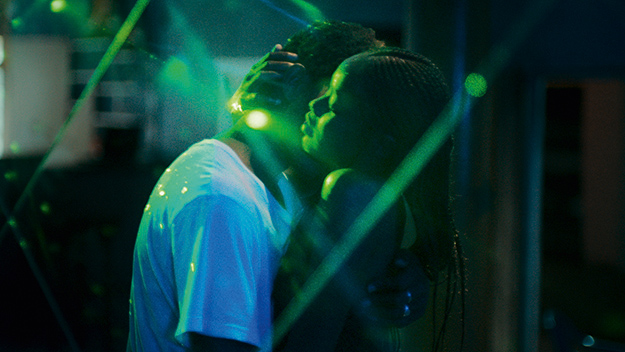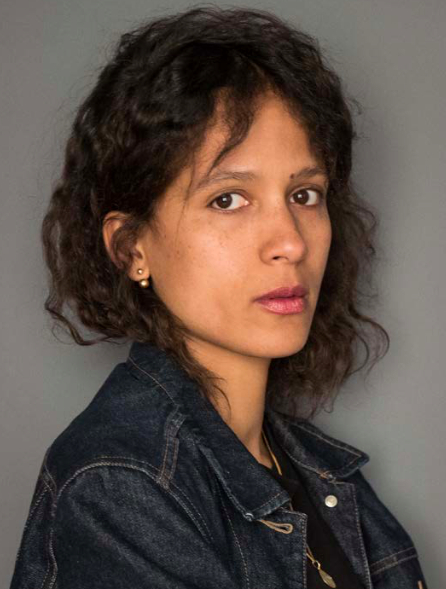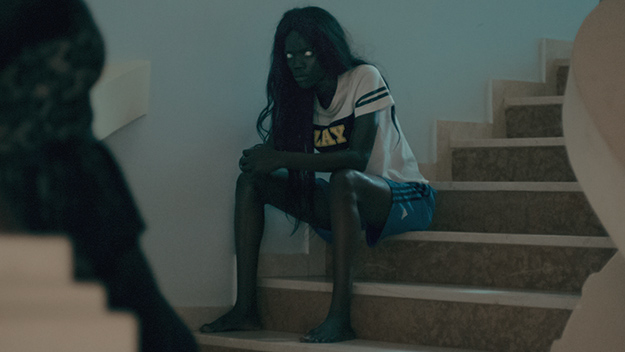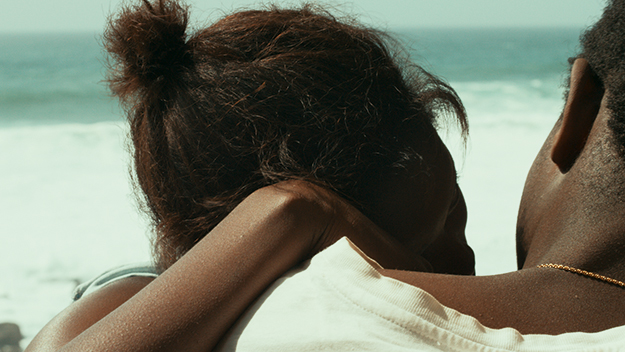
In the press notes that come with Atlantics, director Mati Diop mentions something that touched me in a deep way. She is talking with a young man named Serigne in Dakar, Senegal whose sea crossing story she featured in her short film, Atlantiques (2009). He tells her about migrating and leaving one’s country of birth
when you decide to leave, it’s because you’re already dead
That reminded me of a quote from Tracy Chapman’s "Fast Car" that struck me at a young age and was part of my decision to leave Sudan in the late 1990s. I remember saying it to my friends at the time as a reason to leave.
leave tonight or live and die this way
People migrate for many different reasons. For economic hardship, for political persecution, or when their values no longer match the values of the places they live in. I left because I wanted to live openly as a queer person and not continue being closeted or live on the margins of society, the two choices affored me at the time. Perhaps this personal connection with a story about migration is why I have not able able to stop thinking about this film...
Atlantics, which is Diop’s first narrative feature, starts with Souleiman (Ibrahima Traore) and his fellow construction workers deciding to leave Dakar by boat to Spain, in search of a better life after being swindled off their salaries by the corrupt contractor they work for. He leaves behind his love, Ada (Mama Sane) who now has to marry the rich man her family chose for her. Then the film takes a leap into the supernatural and the mystical while following what happens to Ada and all those left behind by the young men who took that boat trip in the deep of the night.

When I talked to Diop on the phone a couple of weeks ago, that is where we started the conversation. I asked her about her bold choice in starting a narrative then abandoning it several times in the film. First we follow Souleiman and his colleagues and their working conditions. Then Ada and her wedding, then the leap into a ghost story. Was she ever afraid of losing the audience with that narrative structure?
Diop acknowledges that it was hard to find the balance but she had help from her co-writer Olivier Demangel. They considered then discarded a few narrative threads; at one point they thought the film should follow Ada and her girlfriends and focus on building those relationships and concentrate solely on what happens to those left behind by migrants. However she knew that for all of it to be impactful she had to establish the love story between Souleiman and Ada, which is why those couple of scenes at the beginning of the film were the hardest to write and film.
I ask Diop if she ever feared playing into stereotypes about the African continent by adding mysticism and supernatural elements to the story. Her answer was startling in its clarity and in hindsight obvious. No there was no fear because she’s from there. She’s African. While she was born in Paris, her family is Senegalese. She told that she had other fears. She knew that cinema images are important and can be inspirational and motivating and she wanted to use them to reconstruct and repair images from Africa and was afraid if she’d be able to do a good job.

However I spent the bulk of my time on the phone with Diop talking about one scene in particular that I have not been able to get off my mind since I saw the film at The New York Film Festival in early October. Here are excerpts of the dialogue about that scene, edited and condensed for clarity. There are spoilers for a scene later in Atlantics:
Murtada Elfadl: The scene where the ghosts come back and we hear the story of the shipwreck and what happened to Souleiman and his friends is dense with dialogue but so potent visually. I can't get it out of my mind. I am getting tears now thinking about it. Can you talk about your choice to tell the story in words which is something not visual and yet making the images potent?
Mati Diop: I'm very, very shocked and terrified by the fact that this very tragic situation that some people went through was so disrespected and disconsidered by the main mass media. How the migrants have been filmed on the boats and how those images were consumed. How the essence of the situation has been miscommunicated. This existential, political and economical situation has been so mistreated. I have no words to tell you how angry I am at the disrespect.
For me whether in my short Atlantiques or in this one, the moment of the shipwreck is very important because I really want to try to convey the essence of the tragedy. I really want the audience to get as close as possible to the truth and to the tragic dimensions of it.
And how do you picture that? I feel that it's so much more impactful to hear about the shipwreck instead of showing it. So that the audience can create their own images, and that makes them active and in a relationship with what happens. Instead of just consuming images, you experience it through your own imagination, forming a deeper connection with the story. Let's have the, the audience, the spectator, create and be a part of it. It's your own imagination and your own sensitivity receiving the story and it's your brain that is in conversation with the person on screen who is telling the shipwreck story.

This is what cinema can bring. To create a closer relationship between people on subjects that they think have nothing to do with them. But it is the opposite. We should find a way to feel concerned at a human level, at an essential level and to be united in terms of how powerful the tool is. You know for example, the way Greek tragedy had a huge importance in society at that time. I think that cinema should have this, we should trust in cinema as much as the Greeks trusted theater. To be honest with you, nobody talks to me about that scene so I'm glad you asked.
Murtada: I think it's the most powerful scene I've seen on film this year. It was just so haunting and I so struck by what you just said right now about how the audience needs to have their own imagination. It finally came to me, why this scene has haunted me so much. I was imagining what happened.
Mati Diop: Exactly. I'm so glad to talk about that because for me, I was also imagining it differently, but at the end it is what it is. I'm very moved by that story that we hear about what happened and for the audience to be looking at the sea at the same time as they are looking at the faces of the boys lost reflected in the mirror. It becomes an homage to them.